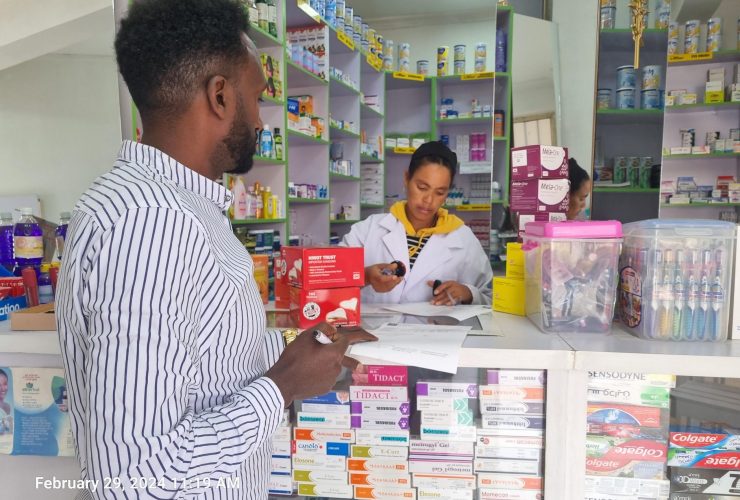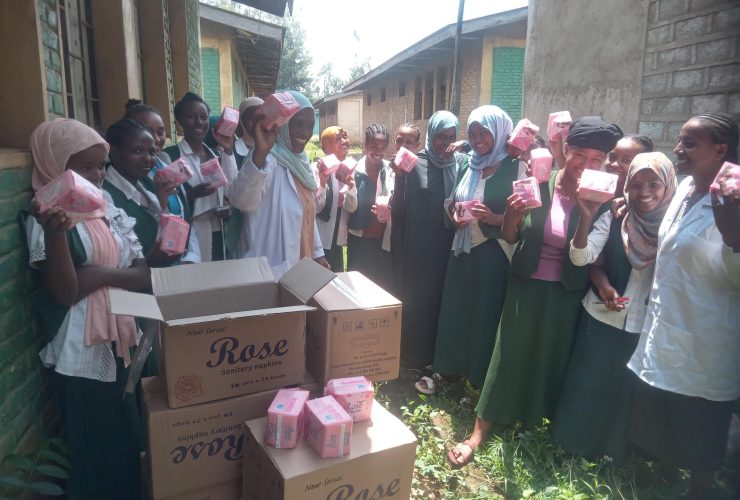DKT Ethiopia ends 2014 as 3rd largest social marketing program in the world
DKT Ethiopia continued its record of success, completing 2014 as the 3rd largest contraceptive social marketing program in the world and the largest in Africa in terms of couples year protection (CYP).
The organization distributed 4.46 million CYP in 2014, which placed DKT Ethiopia 3rd behind DKT International’s program in Indonesia and the Social Marketing Company, a private sector social marketing organization in Bangladesh, in terms of programs reaching more than 9% of their target populations.
DKT Ethiopia’s 2014 output included 58 million condoms, 4.0 million cycles of oral pills (OCP), and 2.92 million injectable contraceptives, among other products.
The organization also ranked first globally in terms of the percentage of women 15 – 49 years old reached.
“The year 2014 was another excellent year for our organization,” says Rory Harrington, DKT Ethiopia’s Country Director.
“CYP output was the highest in our 25-year history as well as 42% higher than in the previous year.”
In addition to the organization’s longstanding products like condoms and OCPs, the organization generated 1.70 million CYP from the distribution of intrauterine contraceptive devices (IUCDs), a long-term method favored by the Government of Ethiopia (GoE) in upcoming health sector development programs.
“Our IUCD output is important given that Ethiopia is moving concertedly towards long-term methods,” continues Harrington.
“We are well placed to assist the FMoH in the roll-out of this method.”
IUCDs cost approximately US $.70 compared to US $8.00 for implant contraceptives, for example. They also last longer than most methods.

Visionary Donors and Counterparts
DKT Ethiopia’s success in 2014 and previous years is largely attributable to donors like the Department for International Development (DFID) and the Embassy of the Kingdom of the Netherlands (EKN) as well as a large anonymous donor. These donors have been instrumental in allowing DKT to build itself into the most influential private sector healthcare institution in the country. Their ongoing support has allowed DKT to make a significant contribution to the national CPR, as well as the remarkably low rate of HIV infection, and continued donor support will enable DKT to further assist the FMoH to achieve its health goals expressed in the 5-year HSTP.
DFID and EKN support goes back nearly 10 years when the donors created a combined donation framework. Called the Joint Grant, a shared funding mechanism streamlined planning and reporting and enabled DKT to focus on what it does best: importing, distributing, and promoting high-quality family planning products.
“Our success would not have been possible without the visionary leadership of GoE counterparts and donors like DFID and EKN,” says Harrington.
“They’ve embraced social marketing as a key tool in reaching the total Ethiopian population.”
Considerable Impact
DKT Ethiopia’s impact is not restricted to 2014. Since starting in Ethiopia in 1990 with a single product – Hiwot Trust condoms – the organization has distributed 30.5 million CYP and currently boasts a product line consisting of 13 product categories, 18 brands, and 27 variants.
DKT’s best-in-class logistics system and salesforce are able to reach Ethiopia’s 13,000 clinical and pharmaceutical outlets with routine product distribution as well as tens of thousands of non-traditional outlets (NTOs) – kiosks, hotels, brothels, and supermarkets – through reselling networks like Young Marketers.
All of this adds up to a significant impact. According to the Federal Ministry of Health’s Health and Health-Related Indicators (HHRI), DKT regularly accounts for 25 – 33% of all CYP distributed in the country, making it the second-largest provider of CYP behind the GoE.
This distribution has had a considerable impact on the lives of individual women and families.
“At the end of the day, we are about improving the lives of Ethiopian women and their children and families,” says Harrington.
Social Marketing 101
DKT Ethiopia operates as a social marketing enterprise meaning that it is neither a purely commercial or non-profit entity, but rather a hybrid of these models. While legally registered as a non-profit, DKT generates considerable revenue from the sale of products – nearly 25% of all expenditures in recent years – which is reinvested into the project.
“Social marketing came about when leaders like Phil Harvey saw a gap in public sector distribution in developing countries,” says Negussie GebreTsadik, DKT’s National Operations Director.
“They realized the private sector could respond more efficiently to market signals, provided products could be subsidized.”
“That’s where donors came in.”
A Roadmap for Growth
While DKT Ethiopia has continued to increase the ratio of revenue as a percentage of project expenditures, the organization is at least 5 – 10 years away from a full-cost recovery model.
“Our vision is to be fully self-sustaining and donor-independent by 2025,” says Harrington.
“There are a lot of steps between now and then, but we believe we have the conditions and tools in place to make this happen.”




